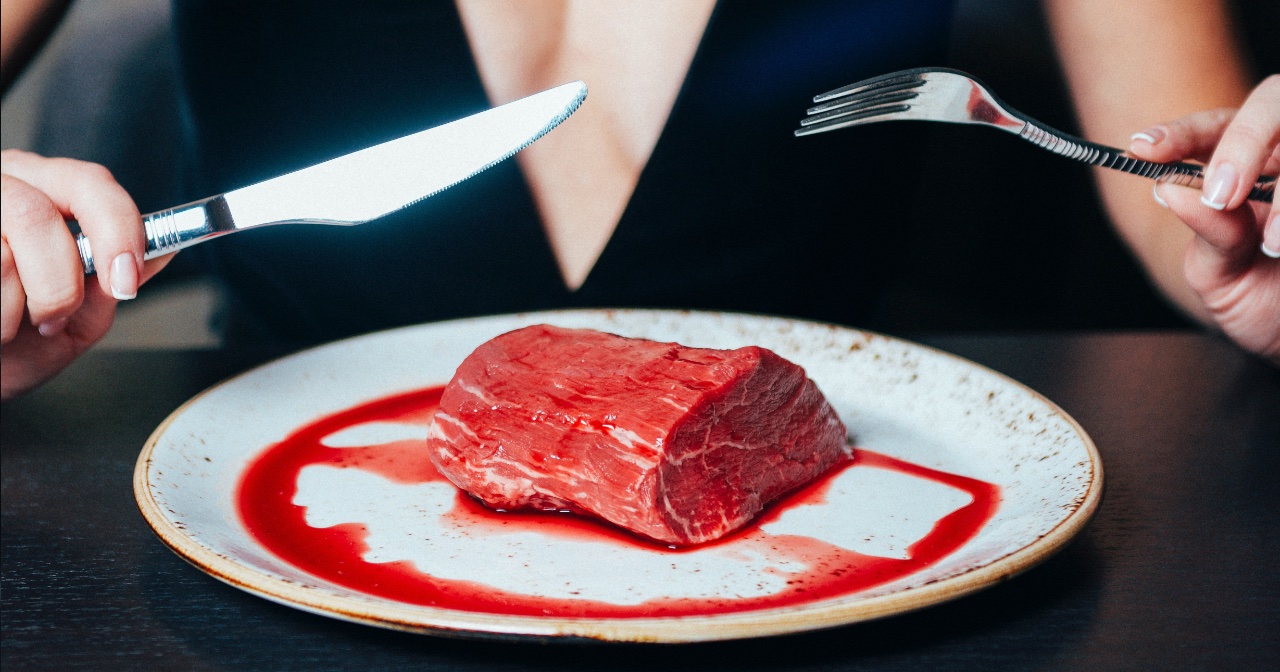Listen on: Apple Podcasts | Spotify
How much protein do I need to build muscle? How much should I eat to maintain it later in life? Without question, the amount of protein you eat each day can have long-lasting effects on your health, fitness, and longevity.
To build muscle (or maintain it later in life), at a minimum, you need to:
- eat enough protein
- follow a well-designed strength training program
- get adequate, quality sleep
Drop the ball on any of those three habits, and you say goodbye to your health-promoting, metabolism-stoking, longevity-supporting, good-looking muscle.
For most healthy people, I recommend a daily protein intake of 1.0 grams per pound ideal body weight. Here’s why…

Feel Better Fast. Guaranteed.
Energy+, EDGE, and MentaBiotics make up the Happy Juice supplement stack, with ingredients clinically proven to:
- decrease anxiousness scores by 55%
- decrease irritability scores by 60%
- decrease fatigue by 64%
- decrease anger 54%
- decrease tension by 45%
- decrease confusion by 43%
- decrease overall distress by 49%
- increase good bacteria by 70%
- decrease negative mood by 105%
- increase positive mood by 211%
Protein digestion, assimilation, and metabolism
Amino acids are the building blocks of muscle.
Before you get any benefit from protein, you must break it down into amino acids and peptides.
Protein digestion begins in the stomach, where pepsin, hydrochloric acid, and digestive enzymes break protein bonds, leaving you with peptides and amino acids.
If your stomach isn’t acidic enough or you don’t have sufficient enzymes available, you cannot break protein down. This is why I encourage people to support their digestive system with supplemental enzymes.
Once the peptides and amino acids reach your small intestine, they get absorbed into your circulation.
Of the absorbed amino acids, 50-60% travel to the liver, where they’re metabolized for other uses.
The remaining 40-50% gets used for energy and protein synthesis. Yet, of that amount, only a tiny fraction goes toward muscle growth.
One study showed that after a group of young, healthy men consumed 20 grams of high-quality protein, only about 2.2 grams was used for muscle growth. The rest was used for other metabolic functions.
You use dietary protein for much more than muscle growth. You use it for your immune system, building blood cells, tissue repair, and even creating neurotransmitters.
The recommended daily intake (RDI) for protein might be enough to avoid disease or starvation, but it isn’t nearly enough for optimal health.
How age and sex affect protein needs
Older adults need more protein than younger adults to support the growth or maintenance of muscle.
As you age, you become less sensitive to protein intake, which means you need to eat significantly more to stimulate protein synthesis to the same degree you did when you were younger.
A 2015 study study comparing men in their 20s to men in their 70s showed that the older men needed to consume 68% more protein than the younger men to stimulate protein synthesis to the same extent.
That said when you see recommendations to consume a certain amount of protein, assume it’s a recommendation for a young adult. Middle-aged adults could benefit from 35% more and older adults from 70% more protein than younger adults.
Research is unclear about the differences between the protein needs of men and women. However, muscle mass does increase sensitivity to amino acid intake.
As the average female has less muscle mass than the average male, I believe women would benefit from higher-protein intakes than men. However, that’s just my belief.
Net Protein Balance, Muscle Protein Synthesis, and Muscle Protein Breakdown
Muscle mass is like a bank account. Your bank “balance” is equal to your deposits minus your withdrawals.
Your net muscle protein balance is equal to your muscle protein synthesis (MPS) minus your muscle protein breakdown (MPB).
When muscle protein synthesis exceeds breakdown, you build muscle.
When they’re equal, you maintain muscle.
When breakdown exceeds synthesis, you lose muscle.
To build muscle faster, you can increase protein synthesis to a greater extent, reduce protein breakdown to a greater extent, or do both.
You increase protein synthesis by:
- Consuming optimal, high-quality protein
- Strength training
- Taking certain muscle-building supplements such as omega-3 fatty acids, amino acids, or creatine monohydrate
In young men, a 20-gram dose of high-quality protein maximally stimulates muscle protein synthesis. Based on the research comparing MPS for young and older men, older men would need 30 grams of protein to maximally stimulate MPS.
You decrease protein breakdown by:
- Managing stress
- Improving sleep quality and quantity
- Eating protein in quantities above what maximally stimulates muscle protein synthesis
- Managing illness
- Balancing hormones such as cortisol and growth hormone
- Increasing insulin levels which occurs with protein ingestion (carbohydrates are not necessary for this effect)
In terms of dietary protein, the more you eat, the more it reduces muscle protein breakdown. So, even though you reach a cap for stimulating protein synthesis, you can eat even more to further slow protein breakdown.
A study by Kim, et al., showed that muscle protein breakdown continued to decrease with single-meal protein intakes as high as 92 grams.
Other studies have shown protein intakes as high as 2 grams of protein per pound bodyweight were safe but did not lead to significantly better outcomes than 1 gram per pound bodyweight.
So, how much protein do you need?
To build muscle, young, healthy people following a well-designed strength training program and getting adequate sleep need a minimum of 1.6 grams per kilogram (0.72 grams per pound) body weight per day to maximally stimulate muscle protein synthesis.
Remember: MPS is just one part of the equation, though. There is no known upper limit known, where you no longer slow muscle protein breakdown.
Based on the research, my experiences, and personal experimentation, I recommend 1 gram of protein per pound goal body weight per day for most people.
Those in a highly catabolic state may require more to avoid muscle loss.
Highly catabolic states include those with degenerative diseases, cancer, or heart disease, as well as people following low-calorie diets or under high levels of stress. Of course, such individuals should consult their physicians before modifying their diets.
This is one of the many reasons I recommend high-protein diets for most people.
In addition to improved body composition or to maintain muscle, a higher-protein diet is beneficial for:
- Weight loss or body fat loss
- Immune health
- Accelerated recovery time
- Reduced cravings
- Improved blood sugar control
How much protein per meal, and how many meals per day?
With that daily intake in mind, the next question is, “How much protein should I eat in a meal?”
That depends on how many meals you eat.
From my experience working with clients, a single meal that includes half your daily protein intake is as much as you’ll probably be able to eat. For example, my body weight is 184 pounds, and I can comfortably eat 90-95 grams in a single meal.
So, I recommend eating at least two meals per day. Those who have a hard time eating such a large amount in a single sitting can simply eat more meals during the day.
High-performance athletes or those with a high activity level, physique athletes, people using anabolic steroids, or those with muscle-wasting diseases should eat multiple meals each day. For most people, though, two to three feedings should be plenty.
One other factor that could help you gain muscle is eating high-quality protein before bed.
A small group of young men consumed 40 grams of protein from casein before sleep, which resulted in a 22% increase in overnight MPS.
If the protein before bed compromises your sleep quality, it won’t be worth it, but if it doesn’t, you might benefit from a bedtime protein shake.
What are the best sources of protein?
Once you’re consistently eating enough protein, the next step would be to ensure you eat the highest-quality sources protein, which includes:
- Whey or casein
- Eggs
- Beef
- Bison, elk, venison, or other wild game
- Chicken, turkey
- Fish
- Other animal-based protein sources
- Mixed plant-based sources that include all essential amino acids, such as a combination of rice and pea protein powder
Soy, wheat, or many other plant-based proteins lack one or more essential amino acids. As a result, they don’t stimulate muscle protein synthesis as well as high-quality, animal-based protein sources.
Plant-based protein sources that are rich in fiber and micronutrients may be valuable, but they have lower anabolic potential than animal-based proteins.
Berrazaga I, et al.
That said, if a supplement or food manufacturer combines plant-based protein sources, they can create a product containing all of the essential amino acids to maximally stimulate muscle growth.
Summary
The research clearly supports the benefits of building muscle while you can and maintaining it when you can’t. The more muscle you have (naturally) throughout your life, the healthier you should be, and the better the quality of life you will have.
Provided you’re healthy and have no pre-existing kidney disease, you should experience significant benefits from eating 1 gram of protein per pound bodyweight.
Of course, you’ll benefit the most by combining your higher-protein intake with a well-designed strength training program and consistent, quality sleep.

Feel Better Fast. Guaranteed.
Energy+, EDGE, and MentaBiotics make up the Happy Juice supplement stack, with ingredients clinically proven to:
- decrease anxiousness scores by 55%
- decrease irritability scores by 60%
- decrease fatigue by 64%
- decrease anger 54%
- decrease tension by 45%
- decrease confusion by 43%
- decrease overall distress by 49%
- increase good bacteria by 70%
- decrease negative mood by 105%
- increase positive mood by 211%



